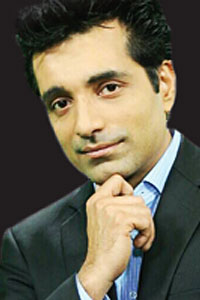Just as we started to believe the government and the National Council for Peace and Order (NCPO) had learnt something and might live up to the promises they made to the international community regarding the roadmap, we have been let down yet again.
The latest disappointment involves the proposal the military regime handed to the Meechai Ruchupan-led Charter Drafting Committee (CDC) earlier this week. It includes such controversial clauses as a fully-appointed Senate with six seats allocated to the military, the top police brass and permanent secretary for defence. If it is not enough that there are clauses which state that those hand-picked senators could act as a voting bloc if there is a no-confidence motion against the ministers and premier.
To begin with, having a handpicked Senate is bad enough for democracy, even in a transition period. To make matters worse, the presence of the most powerful people in the armed forces in the composition of the 250 handpicked senators would mean that we would have a poisonous concoction that could kill democracy at any given point.
It is no wonder that many people are already calling it a “coup in disguise”. Deputy Prime Minister Prawit Wongsuwon’s bid to defend the presence of the top brass as “prevention to a coup” is unconvincing. This is because there is no way any of the 250 members of the “selected” Senate would ever vote against the top brass of the military and police forces. If they do, we all know what the outcome would be.
The Senate, as the upper house, should not be given the power to intervene in the way the government functions — at any cost. Its checks-and-balances role should be similar to that of any Senate in any democratic society.
Having a bloc of 250 members of the Senate, which would account for a third of the lower house (350 constituency members and 150 party-list members) spells trouble for any government whether led by the Pheu Thai or Democrat parties. The administration would be in jeopardy any time there is a no-confidence motion as the bargaining chips would belong to the armed forces.
These kinds of proposals are a clear indication that the NCPO and the military are in no mood to give up their hold on power and want to enjoy the perks for as long as possible. It will now depend on the charter drafters to either dump the regime’s recommendations, or to accommodate, and face the wrath of the public in the referendum.
Given mounting criticism, the CDC is starting to feel the heat over the recommendations and that does not bode well for the final version of the charter that is slated to be revealed on March 29.
On the other hand, our dear leader came out to say that the NCPO will continue sending recommendations to the CDC until the committee recognises them, complicating the situation further as such statements only put pressure on the CDC. But the general public should be glad that at least the major political parties still hold on to certain principles and are doing what they can to inform the public about what is right and wrong.
Actually if there is one thing that has made me feel good about the 2014 power putsch and military rule, it is that the situation has brought the two political arch rivals — the Pheu Thai and Democrat parties — closer in their thoughts and opposition to the undemocratic clauses.
I am keeping my fingers crossed that the Democrat Party will maintain its stance, and demonstrate its opposition to the undemocratic charter in the lead-up to the referendum on Aug 7. This is because it is well known that if either of the two parties gives its support to the charter — and speculation is that the Democrat Party would do so as this may give them the chance to gain the military’s preference and secure its return to power — the charter would survive the referendum.
It is imperative that no matter who comes to power, the country needs a constitution enshrined with democratic principles. We need to move away from the vicious cycle of coups with civilian governments being toppled by force. We have come a long way from the 1932 revolution in which the country transformed from an absolute monarchy to a constitutional system.
It is high time that the interests of the nation and the progress of the country are put forward as the paramount agenda for all parties.
Umesh Pandey is Asia Focus editor, Bangkok Post.
